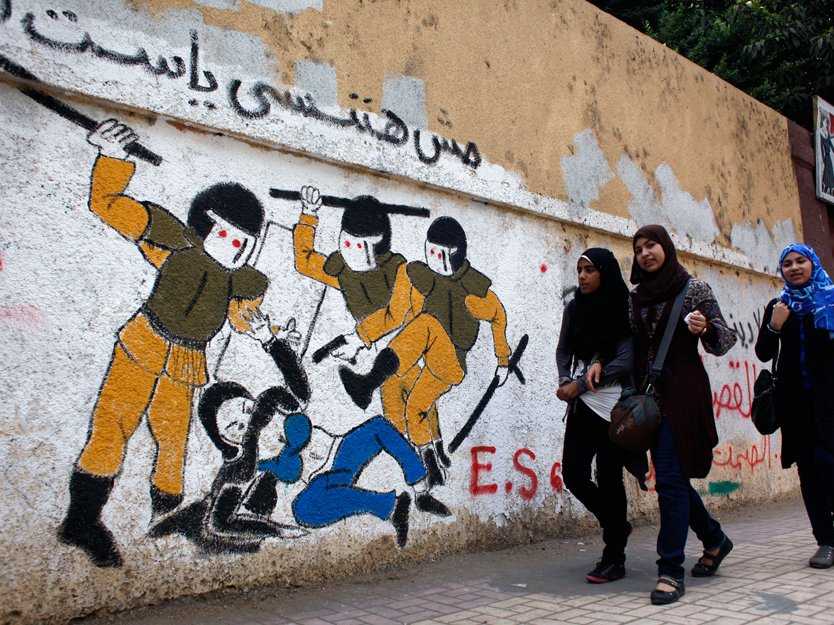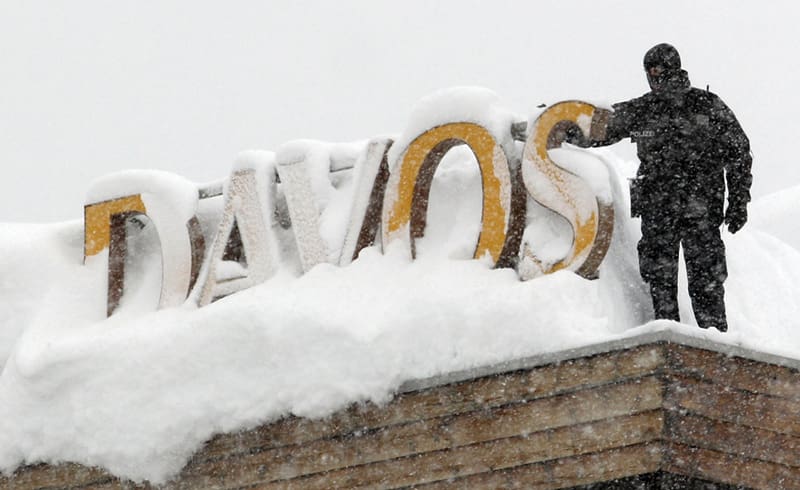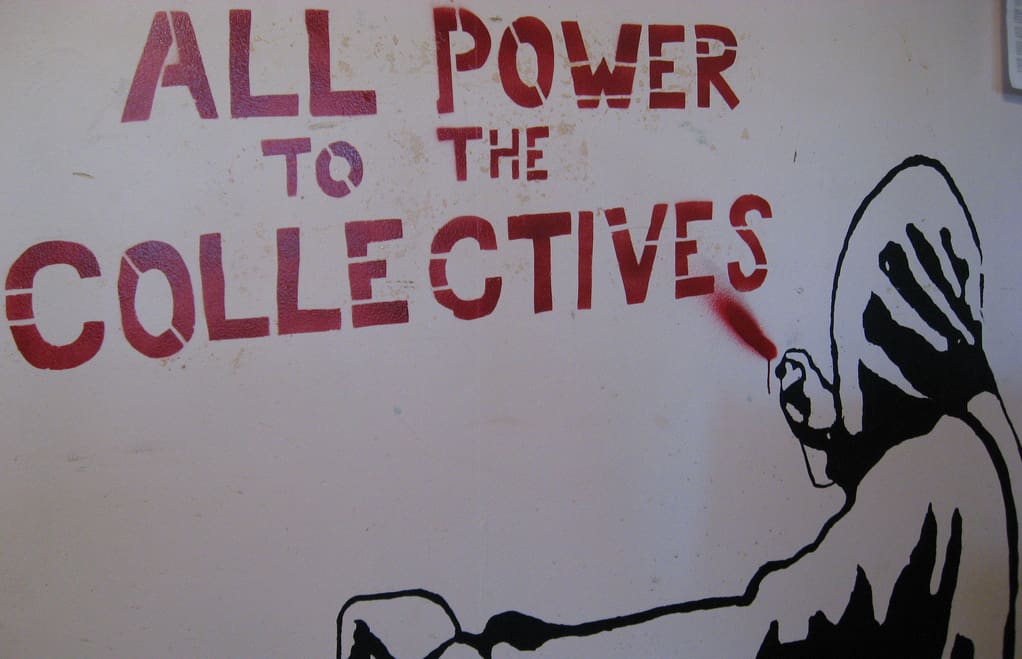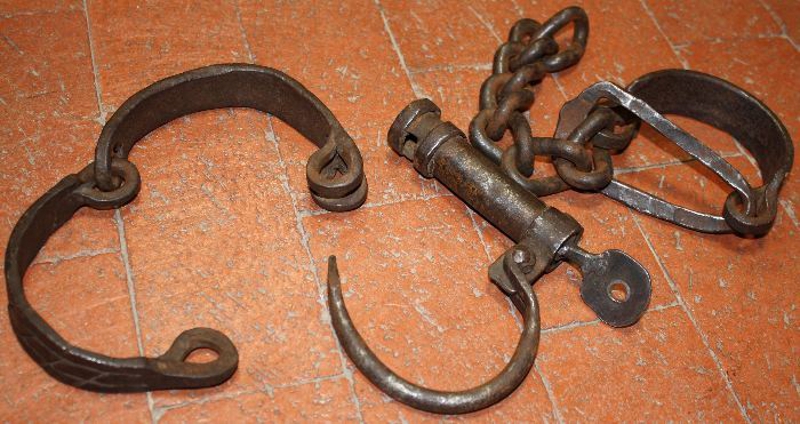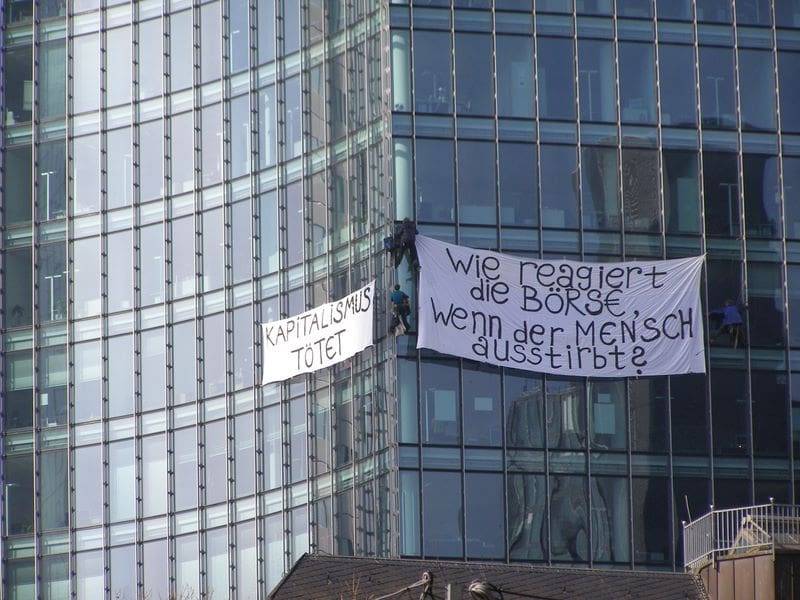Transcribed from This is Hell! Radio’s 10 May 2014 episode and printed with permission. Listen to the full interview:
“Improving livelihoods and education among people never helps authoritarian regimes, which is why they don’t do it themselves. They know that their biggest threat is an empowered, educated populace that can read and feed itself.”
Chuck Mertz: On the line with us right now, live from Beirut, is journalist Thanassis Cambanis. Good morning, Thanassis; good afternoon in Beirut!
Thanassis Cambanis: Great to be with you.
CM: It’s great to have you on the show. Thanassis’s Boston Globe column in late April was headlined How Can America Really Promote Democracy Abroad? One lesson of the Arab Spring: we’re putting billions of dollars into efforts that may not help.
Thanassis, we were just discussing with our last guest, Ken Silverstein, how the United States seems to have to choose between democracy promotion or cheap oil. Over and over again, we have chosen cheap oil, propping up dictators instead of trying to promote democracy. How much does energy policy undermine the West’s ability to “promote democracy?”
TC: I think it’s not just oil, it’s general self interest. In the same class as oil, you might put defense contracts and counterterrorism and intelligence cooperation—these are things where the U.S.’s practical interests run squarely counter to its professed values.
I think there’s a whole range of things that trip up the moral, or ‘values,’ part of our policy. Historically, the only time democracy promotion has any weight is when it happens to coincide with bigger strategic interests. When the United States was confronting the Soviet Union in Eastern Europe, security interests lined up with the ‘values’ argument and suddenly democracy promotion actually meant something, instead of being just a rhetorical force.
CM: So is democracy promotion practical?
TC: There are a lot of reasons to conclude either that it’s impractical or that we should have very, very humble expectations for what we can accomplish. I come at this as someone who’s sympathetic to the idea of spreading civil rights, individual rights, due process, all of this—I like these ideas and I like these values. So the question is, can we do anything about those things in a place like Egypt? And if we can, do we do any of those things?
I think there is a practical value to supporting democracy and supporting political freedom in places like Egypt or Syria or Iraq or Ukraine and so on. In my view, a country that has real competitive politics and citizens that have real rights is actually going to be a more stable place.
So if we’re interested in the oil in Bahrain, or if we’re interested in strategic cooperation in Egypt (or whatever stake a country has in some tangible interest the United States is after), we’re going to have a better deal, in the long run, if we’re dealing with a government that represents its people and is therefore more stable, less likely to be toppled by a rebellion—and also less likely to be distracted by trying to suppress public opinion or lock up dissenters (as Egypt is doing today, going on a witch hunt after every person of any stripe who’s critical of the dictator).
And so it is self-serving. Even if you don’t care, the way I do, about these values and you’re simply looking at it pragmatically, it’s not a good deal to invest in unstable tyrants who have zero local legitimacy.
CM: Yeah, but that’s in the long run. Our politicians have terms of two, four, or six years, and it seems that they’re unwilling to push for democracy in other nations if it might lead to temporary instability, even if it does mean a better relationship in the long run.
TC: I’m not sure it’s our short-term election cycle that drives it. It’s really that our policy makers don’t believe that the process works the way I just described it. The United States and European governments think that stability in the international system means having a known address; having a known interlocutor.
Let’s go to the example of Egypt: I spent most of the last three years in Egypt working on a book about their attempt to build a better society after Mubarak. We see what happened: as soon as Mubarak was gone and he was replaced by this freak military dictatorship, the U.S. kept all of its relations open, kept all the aid open, the diplomatic channels. And when the Muslim Brotherhood candidate won, the U.S.—very interestingly—not only embraced the new president but to the exclusion of any other actors started having the same kind of relationship with Morsi that they had with Mubarak.
The U.S. was saying, “we are not comfortable talking to a multiplicity of actors; we’re not comfortable dealing with lots of people in a foreign country who have different levels of power; that makes us confused and uncomfortable. We prefer one address. One honcho. One man or woman who is the sole point of contact.”
I find that kind of puzzling, because the U.S. is an enormous country with a lot or resources; it has the diplomatic tools to deal with complex problems. It’s not that we have a stupid bureaucracy in the United States. But we’ve seen this in all the countries that had uprisings in the Arab World. The U.S. is very uncomfortable with murky transitions.
In contrast, take a country like Iran, which really knows how to navigate complicated situations: they’re fine with ambiguity, they don’t mind. They’re happy to give a little money to their “frenemies,” a lot of money to their allies, scatter around the weapons and the influence, and see who comes back with policies that reward their interests. That’s unfortunately not the kind of complexity that U.S. policymaking has ever embraced.
CM: I think there’s probably people in the audience who would say the United States is not a democracy. We had Ben Page on the show last week; the Northwestern University professor has this new paper out with Martin Gilens about how the American political scene is dominated by economic elites. A lot of people have taken that to mean that the United States has become an oligarchy.
How much does that undermine our ability to promote democracy overseas?
TC: There are a lot of problems with the American system of governance, but I think it becomes silly when people describe it as ‘not a democracy,’ especially if you’ve been living in places like Egypt or Lebanon or Syria where we’re really talking about fascist, murderous dictatorships. So let’s keep that in perspective.
But there’s absolutely no question that democracy is not something that can be exported. It can’t be imposed; it can’t be exported. Even a country that wants democracy, that is “ripe” for it, won’t get it because of anything that the U.S. or Europe does. No one who is serious about democracy promotion thinks that the U.S., simply by “leading by example” or coming up with the right kind of program, will make this happen in other places.
This is a merciful improvement from the triumphalist period after the Cold War, when there was this sense of inevitability about the American system somehow replicating itself all over the world, with the “End of History” and all this nonsense. That’s not on the table anymore.
What is on the table is the still heavily debatable question of whether outside actors, particularly the European Union and the United States, can spend money and exercise political influence in a way that makes transitions to democracy (or transitions to less abusive, authoritarian systems) possible and feasible in parts of the world where there are popular pressures for reform.
The current consensus among governments is that yes, they can. So they spend roughly $14 billion a year worldwide, mostly from U.S. and EU programs, to do things like train mid-level political party leaders in how to do opinion polling, or train midlevel journalists in Tunisia or Moldavia on how to work on new web platforms for their newspapers. The idea is that this creates the tools and the capacity so that when there is some kind of local, indigenous, authentic push toward reform or toward democracy, these local actors will have the tools they need to create democracy.
And on it’s face, that sounds like a completely innocuous idea. But there are a lot of questions about this, and one of them is: is America so toxic that any group that gets aid from the U.S., even if it’s a pro-democracy labor union, will be de facto discredited?
And the other big question that hovers over all of this is: we have fifty-plus years of history with this, and in the places that have made a transition to democracy from dictatorship—Brazil, Argentina, Indonesia, and so on—no one has ever been able to show that these kinds of programs actually played a serious role one way or another.
“Most of these programs do no harm, but they come in the context of policies that do tremendous harm.”
CM: We are speaking with Thanassis Cambanis. He teaches at Columbia University’s School of International and Public Affairs, and is currently working on a book covering Egypt’s new political order. He’s also the author of the 2010 book A Privilege to Die: Inside Hezbollah’s Legions and their Endless War Against Israel.
I wanted to mention that book because today you are in Beirut, Lebanon. Back in May 2012 we spoke with Alia Brahimi about her concern that the Syrian war would spread into Lebanon, and sure enough it has. How much of an impact has the Syrian civil war had on Lebanon, and does this have anything to do with failed Western democracy promotion projects in the region?
TC: The unifying theme here would be failed or failing states. Lebanon, which is where I live now, has never really had centralized authority since the end of its own civil war. I like to joke that Lebanon is the paradise of the libertarian American rightwing; it’s a place where everyone has a gun, where religious extremists are in charge, and where there are no laws or regulations that you can’t buy your way out of.
That aside, Lebanon is a pretty fragile place, and it’s a small country with just over 3 million people. Since the war in Syria started, a million refugees have moved here. In the year and a half that I’ve been living here, I’ve seen neighborhoods, including mine, get swamped with wealthy refugees, poor refugees, homeless refugees on the street…it’s actually a miracle that this place hasn’t collapsed into its own civil war as a result of this. Lebanon really is crushed under an enormous burden. One in four people in the entire country is a refugee, and this is a country that barely worked before that.
One interesting aspect to this, politically, is that somehow it seems that the conflicting sectarian bosses here are so dead-set against civil war breaking out here again that they fight each other over in Syria, but they haven’t brought the fighting back to their own home turf—yet.
CM: In the article One Lesson of the Arab Spring: we’re putting billions of dollars into efforts that may not help you write about the effect of U.S. democratizing efforts overseas. These efforts are never mentioned on the nightly news because, well, to the nightly news there’s nothing controversial about the U.S. spending money to bring democracy overseas. It seems innocent, it makes sense, it seems charitable: we’re so nice to spend billions on trying to democratize governments around the world!
Should the world thank the U.S. for spending so much money on democratization efforts around the world by the National Endowment for Democracy, by USAID? How grateful is the world for how good we’ve been to them, Thanassis?
TC: I have a funny anecdote from here in Lebanon. Over the years, the U.S. has spent millions of dollars on various programs—to help bring better cows to farmers or help restore local cultural sites in rural villages in Lebanon. Almost all of these projects go on without any visible identifier linking them to the U.S. government. I was in a small town in southern Lebanon and I happened upon this beautiful fortification from World War II that had been cleaned up and restored; it was being furnished as a community site. USAID had paid for that, but they kept their name off it because they didn’t want to piss people off.
And in a way, of course, the point of this is just to help these societies do things they need and want to do, so you shouldn’t need to put your name on it. But if Iran paves a road in Lebanon they put up a billboard and say, “thank you, Iran, for giving us a new road!” And the U.S. does something lesser but of a similar type, and doesn’t want to advertise it for fear of discrediting the places it helps. I think this shows that the U.S. does do some good things—but if it has to keep them secret, in a way it might as well not do them.
Now, to the thematic core of your question: I think most of these programs do no harm, but they come in the context of policies that do tremendous harm. For example in Egypt, it’s great that the U.S. supports a small foundation that tracks police abuse of civilians. But at the same time, the U.S. is giving a billion and a half dollars to a military that is responsible for massive lock-ups of civilians and abridgments of the due process of law in detaining tens of thousands. It’s not to say that the democracy component is useless, because it’s doing one drop of good…but it’s doing a drop of good in a tidal wave of bad.
And so I would argue that if the U.S. cared about establishing norms of liberal rights or helping civilians in this part of the world, there’s a lot of things it could do. Just not in the realm of “democracy promotion,” but rather by making better, more long-term oriented, moral choices in the realm where they spend the real money: security policy and their military budget.
“The people won not because of some brilliant new technique or some kind of crowd-sourcing innovation from Google or Facebook or Twitter; it was one hundred percent from the old-fashioned source of power, which is people willing to fight and die.”
CM: Just a couple more questions for you. You write about the Arab uprisings that began in 2010: “America and other Western nations have been working for decades and investing hundreds of millions of dollars to support a vast network of pro-democracy organizations across the Arab World based on prevailing theories. Once protests started to shake one authoritarian government after another, the popular momentum should have been unstoppable.”
Now, here in the U.S., we’re told that the Arab Spring was because of the writings of American political scientist Gene Sharp, or it was because of Google’s Wael Ghonim and whatever online technology he brought to Egypt. How responsible is the U.S. for the Arab Spring, and could it have happened without the U.S.?
TC: With all due respect to Gene Sharp and Wael Ghonim, these uprisings happened entirely independently of those two men and their writings. And they happened entirely, if anything, in defiance of U.S policy, which was really working double time to protect and promote the authoritarian regimes that were suppressing these popular revolts. I would argue further that other U.S. actions, in particular the invasion of Iraq, delayed the Arab uprisings.
They were bubbling up because of the massive failures of these states to provide livelihoods or rights to their people. All over the region people were suffering under a twin unbearable load of oppression, which is: you’re treated terribly, have no rights, and it’s not Singapore; you’re not at least getting some kind of nice standard of living in exchange for having no freedom. You get no freedom and you get no decent life.
Certainly the protest tactics of Gene Sharp influenced the few dozen people who came in contact with them, but basically once people got angry enough and once they were willing to take on the police, they took them on through brute force. You had a few thousand riot police and ten thousand people willing to die up against them, and they won. It wasn’t because of some brilliant new technique or some kind of crowd-sourcing innovation from Google or Facebook or Twitter; it was one hundred percent from the old-fashioned source of power, which is people willing to fight and die.
I would also argue that all these revolts, especially Egypt, are not over. They’re simply in abeyance or in hibernation. Because all the conditions that led people to feel such despair that they were willing to die rather than live that way anymore—all of those conditions still pertain quite badly. There is going to be explosion after explosion in these societies until they either get governance that gives them rights or governance that gives them bread. They’ve got to have one of those things in hand or there’s going to be continuing turmoil.
CM: One last question for you Thanassis, and as we do with each of our guests, it’s our Question from Hell: the question we might hate to ask, you might hate to answer, or our audience is going to hate the response. I understand that helping education, health and the economy may help create fertile ground for a democracy to be built. But if you are helping out the education, health and economy of a nation that is being run by corrupt leaders, by dictatorship, isn’t that simply helping them get a better grip on power? Because unless there is instability, often you don’t see revolution.
TC: The thing that the U.S. does that helps keep the Egyptian generals in power is give them money to run their military. It’s not what they do with the water system and the Ministry of Education. The thing that counts is the big money, the guns, the defense contracts. So I don’t think so.
Even if there were American interventions that could make meaningful improvements in, say, literacy in Egypt, I absolutely don’t think that would make the dictatorship stronger. The dictatorship is strong because it presides over a broken people who cannot claim their own natural, innate human and political rights. If they can read, if they can make money, if they can support themselves, they are much more likely to contest the power of their oppressors.
Improving livelihoods and education among people who are that poor and that disenfranchised can never, ever be a bad thing. It ultimately never helps these authoritarian regimes, which is why they don’t do it themselves! Because they know that their biggest threat is an empowered, educated populace that can read and that can feed itself.
CM: It’s great to have you on the show. Thanks so much, and enjoy the rest of your evening in Beirut.
TC: Alright! And let me just say the title of my fortcoming book is Once Upon A Revolution: an Egyptian Story, and it’s going to be in bookstores next January. Thanks so much for having me on.
Featured Image Source: New Eastern Politics blog

